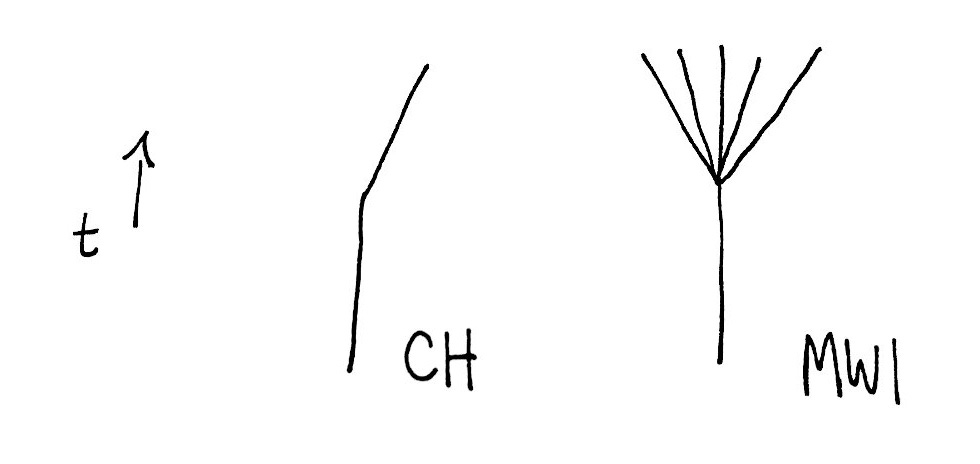Many Worlds versus Consistent Histories
Further thought about interpretation of quantum mechanics
Another thought concerning the interpretation of quantum mechanics. This problem can be framed in terms of continuation, making it much more intuitive. So when we analyze a quantum system in superposition, the Schrödinger equation shows us the possible continuations of the system's evolution. The evolution history of the system, in turn, is a coherent series of such already realized continuations.
Let's consider a particle in superposition. We want to measure the spin of this particle along a certain direction. There are two continuation options—one with spin up, the other with spin down. The many-worlds interpretation says that reality will continue according to both options simultaneously—it will split into two separate, non-interacting branches. The consistent histories interpretation, on the other hand, states that only one of these options can constitute the continuation; the rest simply will not be realized.
Ultimately, it seems that the difference in this matter stems from the degree of belief in the reality of the Schrödinger equation describing the wave function. Proponents of the many-worlds interpretation believe it should be interpreted literally. And if all measurement results are treated equally within it, that means they indeed are, even if we are unable to observe them. Proponents of the consistent histories interpretation, in turn, believe that yes, the theory treats all measurement results equally, but that doesn't mean all of them will be realized. Only one will be realized—exactly as we perceive it.






